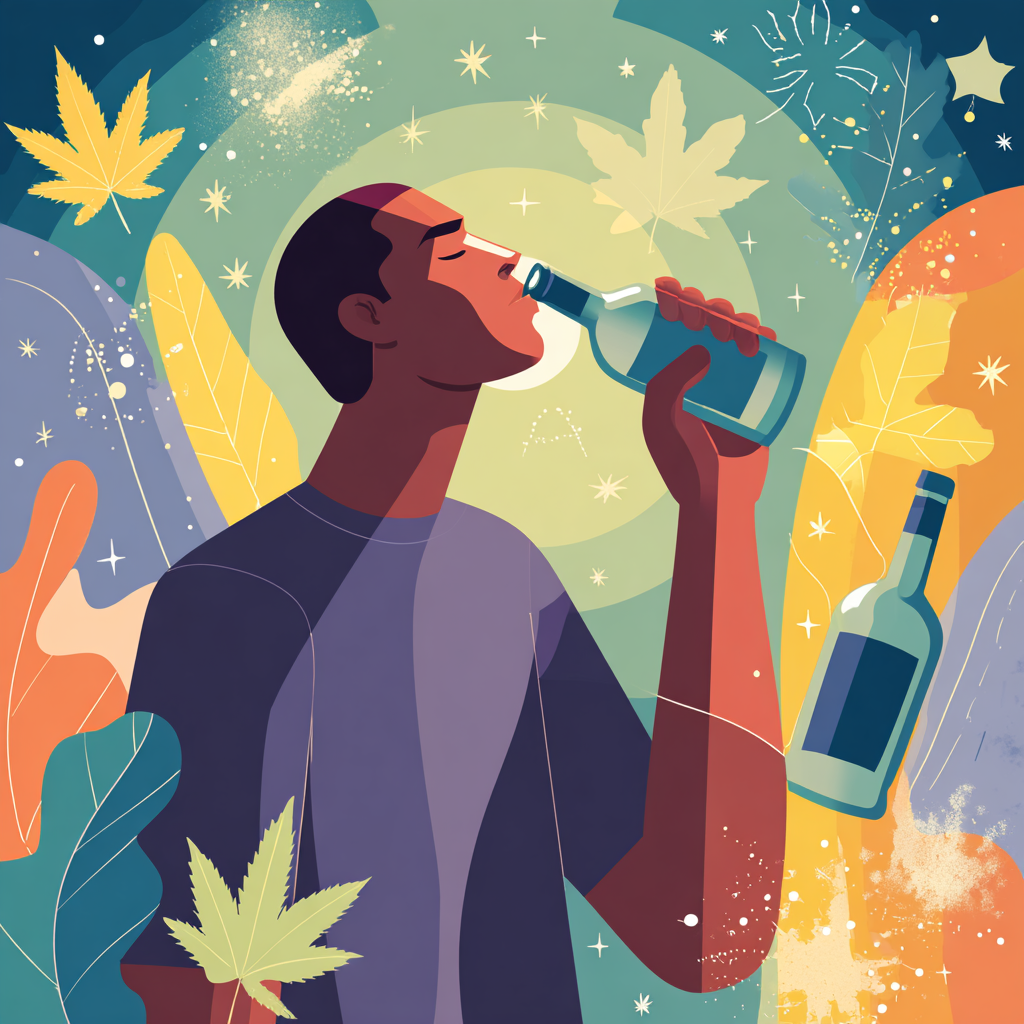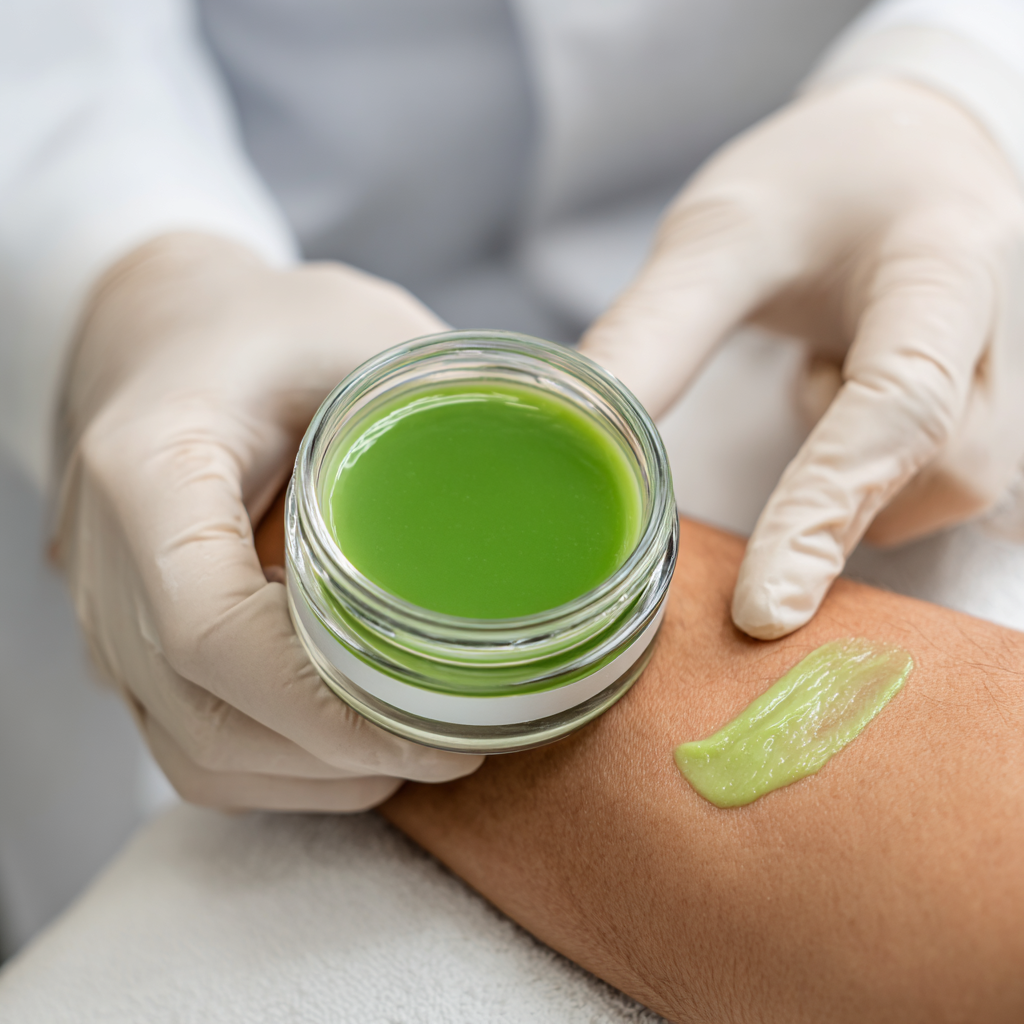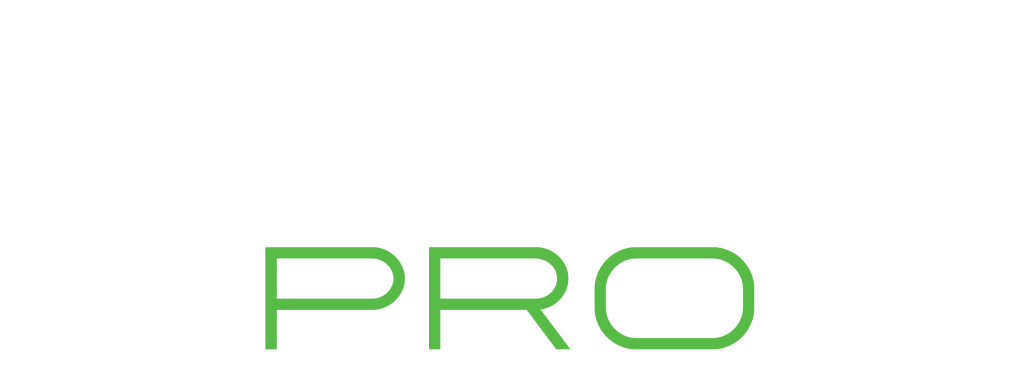Weed Before Wine? Study Shows Cannabis Can Cut Heavy Drinking

A federally funded human-lab study released recently found heavy users consumed about a quarter fewer alcoholic drinks—and had lower desire—when they inhaled legal cannabis prior to alcohol consumption. The study supports the case for cannabis as a harm-reduction substitute for some individuals who are not capable of decreasing consumption.
Researchers performed a randomized human lab study on heavy drinkers who attended a session where they inhaled cannabis before consuming alcohol and attended a session where they were presented with alcohol without cannabis.
Cannabis-first days not only saw subjects drinking much less in absolute amounts, they showed reduced desire to drink, implicating something more sophisticated in effects than straightforward “displacement” of toxins.
Since the experiment employed legal-market materials and controls in time, it provides brief, policy-relevant evidence of actual-world behavior in place of post-hoc self-report. We are constrained, however: lab settings are unnatural; our results are short-term, acute effects; and our results are not generalizable to all (e.g., those with cannabis use disorder or taking sedatives).
Nevertheless, alongside earlier substitution studies, the message is plain—cannabis does, in certain situations, cut risky drinking. That carries relevance for emergency-room saturation, liver disease, and alcohol-related violence.
Future research encompasses larger, outpatient studies tracking weekly use and relapse predictors, and practice at the clinical level to separate those who seek help (and those who don’t). For now, the study reshapes an old refrain: where before a gateway to additional damage, cannabis could well on occasion serve as an exit ramp.
Source: marijuanamoment.net
CBD For Skin: Review Finds Promise For Acne, Psoriasis And Wound Repair

A peer-reviewed review published today determines that topical CBD holds promise in treating common skin diseases such as acne, psoriasis, eczema, pruritus and wound healing, and short-term use is well tolerated.
Improved formulations and standardized studies could bring CBD from hype to ready-for-the-clinic dermatology, say the authors.
According to both mechanistic and clinical evidence, the review reveals how CBD works on skin’s endocannabinoid system—to suppress hyperactive immune cells, regulate the sebum, reduce oxidative stress, and impact the behaviour of skin cells.
Initial reports and studies suggest the resolution of inflammatory lesions, relief of itching, and early recovery after procedure or burns.
Also outlined are hair and pigment disease, and adjuvant indications in select skin cancers, where deficiencies are noted: very few products are explicit regarding dosage, bioavailability is extremely inconsistent, and decent head-to-head comparison studies are rare.
The evidence suggests a balanced perspective: CBD isn’t a cure-all, but appropriately formulated products with enhanced delivery systems and targeted dosing can serve as valuable dermatological treatments, particularly for patients who cannot tolerate or wish to avoid steroids.
Source: mdpi.com
Veterans Report Lower PTSD Symptoms On Cannabis Days

A daily-diary study conducted with federal funds of 74 newly released U.S. veterans found that on days of cannabis use, their PTSD symptoms and negative mood were decreased relative to non-use days.
As the analysis controls for the same unit (with daily reports from the participants themselves and wearable data), the resulting signal Thus goes beyond simple user-vs-nonuser comparison and suggests a same-day association.
Researchers followed troops with high symptom burden of PTSD who also had a past-month history of cannabis use, and they were asked to diary use and symptoms daily for the study period while they wore activity and sleep sensors.
A September 2025 study in Psychiatry Research found that days when participants used cannabis correlated with lower PTSD symptom scores and less negative affect (anxiety, irritability, and dysphoria).
Why it matters: for veterans with hyperarousal who experience nightmares and intrusive memories in between sessions, brief-window relief can help daily life become more tolerable.
Results are consistent with preexisting substitution studies in anxiety and pain and can help inform harm-reduction counseling until larger randomized controlled trials establish dosing, administration, and harms such as dependence or cannabis-related sleep disturbances.
Clinicians will advocate for “start low, go slow,” as opposed to heavy daily use, as well as taking into consideration any co-morbidities and interactions with other medications.
This research provides a stronger evidence foundation for discussions many clinicians are already having with patients who self-medicate with cannabis. It also strengthens the case for Veterans Affairs studies that could establish clear clinical pathways for either prescribing or deprescribing cannabis treatments.
Source: sciencedirect.com
Morocco Greenlights 67 Legal Cannabis Products

Morocco cleared 67 cannabis-infusion products—26 cosmetics and 41 supplements—the nation’s most consumer-facing success since legalizing medical and industrial cannabis.
It is a sign of the legal industry transitioning from licensed crops and co-ops to branded, finished goods on retailer shelves.
The approvals, issued by the Moroccan Agency for Medicines and Health Products, reflect a shift from pure cultivation policy to regulated product portfolios that can be inspected, recalled and exported.
For Rif-area producers, sales of finished goods are for solid contract orders and preferably superior prices than bulk sales of raw botanicals; for end-users, cosmetics (serums, creams, balm) and supplements through health authorities offer more explicit labeling and quality control.
Challenges remain—in illegal channels they still undercut on price and expedited shipping—but a properly regulated product range is a necessity for pharmacies, merchants and overseas buyers who need paperwork as well as a harvest certificate.
Be especially vigilant over labeling assertions, adulterants and THC content for authorities as exporters set sights on export markets in the EU, Middle East and Africa.
With more products going through the course of review, Morocco’s offer becomes more compelling: a short-haul, price-competitive producer of regulated cannabis inputs and finished goods.
Source: moroccoworldnews.com
Google Tests Cannabis Ads In Canada

Google has begun a 20-week pilot allowing federally licensed cannabis operators in Canada to run Search ads, with tight compliance guardrails. If successful, the test could steer consumers towards legal cannabis options.
According to the company, the pilot—launched August 25, 2025—limits eligibility to license-holders and is designed to gauge user interest and inform future policy updates.
For patients and adult consumers, this could be a practical shift: rather than scrolling past dubious SEO-driven listings, people searching for “nearest dispensary” or specific product types could actually see verified ads from legal cannabis businesses.
For regulators and industry, Search ads could enhance age-gating, geo-targeting by province, using compliant messaging—tools that social platforms have largely denied to cannabis companies completely.
There are caveats: ad creative will remain constrained by Canada’s strict promotion rules, provincial regulators may layer on their own limits, and Google could still withdraw the option if abuse appears.
But if the test increases click-throughs to licensed retailers and reduces conversions for illegal operators, it would provide rare, measurable evidence that digital advertising can serve public-health goals in regulated markets.
That data could nudge other platforms to pilot their own compliant routes for verified operators.
Source: marijuanamoment.net


